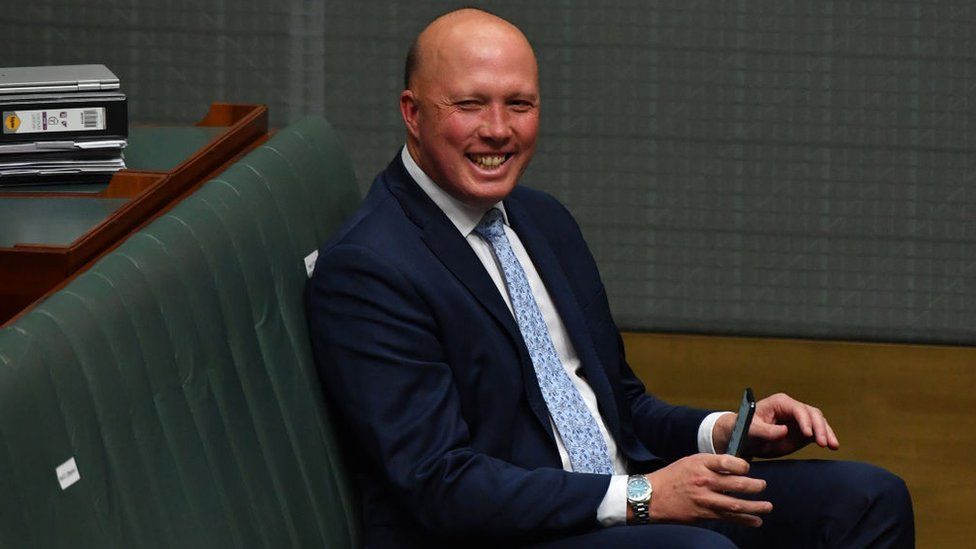Experts are critical of Peter Dutton’s claim he planned to buy two US nuclear submarines to plug a looming capability gap as the Liberal leader goes into damage control over the disclosure.
Dutton has been accused of “political point-scoring” and being “unhelpful” in a campaign to pressure Labor’s Richard Marles to rule out other options to plug the gap between the retirement of Collins class submarines and Australia’s plan to build a nuclear fleet.
On Thursday, Dutton, the former defense minister, revealed a plan he devised before the election to buy two Virginia-class submarines by 2030, claiming he had “formed a judgment the Americans would have facilitated exactly that”.
The comments raised eyebrows because Australia had not formally decided whether to opt for US or UK nuclear submarines and because experts have suggested it is unlikely the US would give up two of its submarines by 2030.
Marles labeled the intervention “rank politics” and “completely inconsistent with everything Peter Dutton was doing and saying in government”.
On Friday, Dutton responded by claiming Marles, the deputy prime minister and defense minister, was in “witness protection” because he had not done other media on the issue. Marles was in Singapore for the Shangri-La Dialogue with regional counterparts from 30 nations.
Dutton claimed that Marles’s early comments about the submarine issue demonstrated “loud and clear that Labor is thinking about ditching the nuclear submarine plan” – despite Labor repeatedly recommitting to Aukus.
“It would be a disaster for our country,” Dutton told Channel Nine’s Today. “We worked day and night to get that plan in place, and what I’ve said is only what’s available publicly, and in addition to that, what my thoughts would be on the way forward.”
“If Labor is going to butcher that and they don’t have the money to pay for it, they should be upfront and say it.
“That’s the path they’re taking us down at the moment. It’s not in our national interest.”
Marcus Hellyer, a senior Australian Strategic Policy Institute analyst, told Guardian Australia Dutton had “put out an idea or concept”.

“There’s no way this is a plan, it hasn’t been agreed by the US government, nor Australia; nobody has agreed to it.”
“If it were a plan, it would be a pretty serious kind of breach or leak [to disclose it].”
Hellyer said that Marles is “not on the cusp of an announcement about an interim submarine purchase” and has “every right to look at every option”.
Hellyer said the Americans had insisted on bipartisan support for Aukus, and it was “not great optics” for Dutton to advocate for his idea before a decision.
“Politicians shouldn’t be doing this publicly … My view is it’s not particularly helpful. The US will be thinking, ‘what are these guys doing’.”
“No boats are available before 2030 unless the US gives up its own – that would be quite remarkable – the US has been clear there is no way they can build additional submarines.”
The chair of defense studies at the University of Western Australia, Dr. Peter Dean, also expressed concerns about Dutton’s intervention.
“I’m sure that the UK wouldn’t be happy to learn from a newspaper article that, potentially, their submarine is not an option, and I’m sure there’s plenty of people in the US Congress, the Pentagon, and other parts of the US who were very interested to read these possible developments,” Dean reportedly told the ABC.
“These are sensitive negotiations, and I think a great concern here is that Peter Dutton has worked against the national interest in an attempt for some domestic political point-scoring.”
At a press conference in Sydney on Friday, the New Zealand prime minister, Jacinda Ardern ruled out that Australia’s nuclear submarine purchase would affect the two countries alliance.
Ardern said New Zealand’s “policies about nuclear issues are not changing”, meaning nuclear submarines would not be permitted in New Zealand’s waters.
“But nor was there any sense that it’s something that Australia expects us to [do].
“We have, of course, had a longstanding relationship, friendship, and partnership, and we’re allies. And so I think those principles are well understood. They are not a point of tension at all.”











